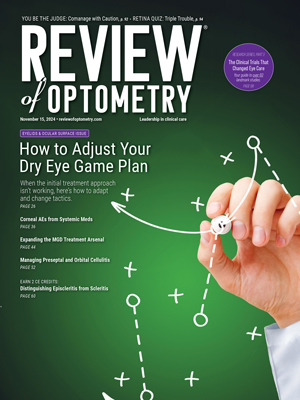The brain’s pleasure response to tasting chocolate can be measured through the eyes using standard electroretinography, according to a study in the journal Obesity. The researchers found that electrical signals in the retina spiked high when participants tasted a small piece of chocolate brownie. “What makes this so exciting is that the eye’s dopamine system was considered separate from the rest of the brain’s dopamine system,” says Jennifer Nasser, RD, PhD, of Drexel University. If validated, this method could be useful for research and clinical applications in food addiction and obesity prevention.
Low birth weight may be a risk factor for age-related vision loss, according to a recent study in PLOS One. In a rat model, underweight subjects were more likely to experience decreased night vision and reduced visual function over time than their normal birth weight counterparts. If this same causal link exists in humans, the researchers say, then clinicians will need to closely monitor the vision-related concerns of patients who were born underweight.
“Predator” bacteria are effective against antibiotic-resistant bacteria, such as Pseudomonas aeruginosa and Serratia marcescens, according to another recent study in PLOS One. “Our work demonstrates that predatory bacteria have the ability to attack ‘real-life’ Gram-negative human pathogens associated with ocular infection,” the researchers conclude. Also, “the presence of high concentrations of predatory bacteria [doesn’t] appear to be harmful to human cells.”

